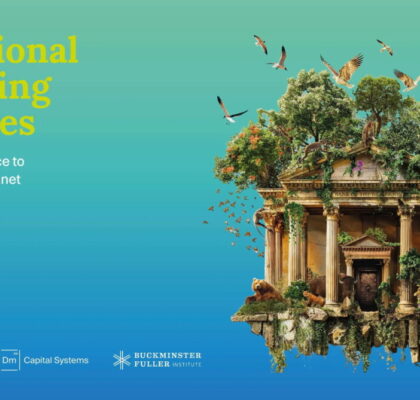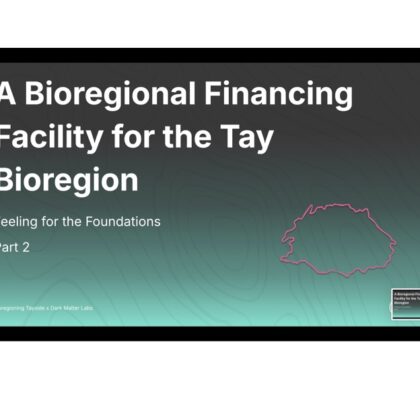This project, which has resulted in a set of new ‘recipes for action’, investigated how community-led food growing can be strengthened and developed in Tayside. Empowering this very important part of Tayside’s food system was one of the many recommendations made at the conference ‘Feeding Tayside Through The Climate Crisis’, which took place in Dundee in March 2023.
Participants in that conference, convened under the umbrella of Bioregioning Tayside, acknowledged that Tayside’s food system needed to transform this decade in order to deliver climate change mitigation and adaptation, safeguard biological diversity, improve food security, and create more inclusive and resilient food economies that deliver healthier diets for all.
Following the event, the Conference Working Group devised a framework for the different areas of activity that required action, see diagram below.
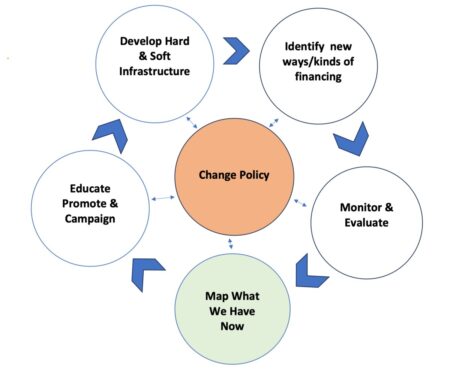
The Intervention Wheel
Called the ‘Intervention Wheel’, the objective was to visually summarise the many suggestions and recommendations made and make it easier for everyone involved in Tayside’s food system to understand where they could best contribute.
Bioregioning Tayside undertook to lead on the mapping intervention, beginning with mapping community-led food growing in Tayside with the aim of better understanding how to strengthen and develop it.
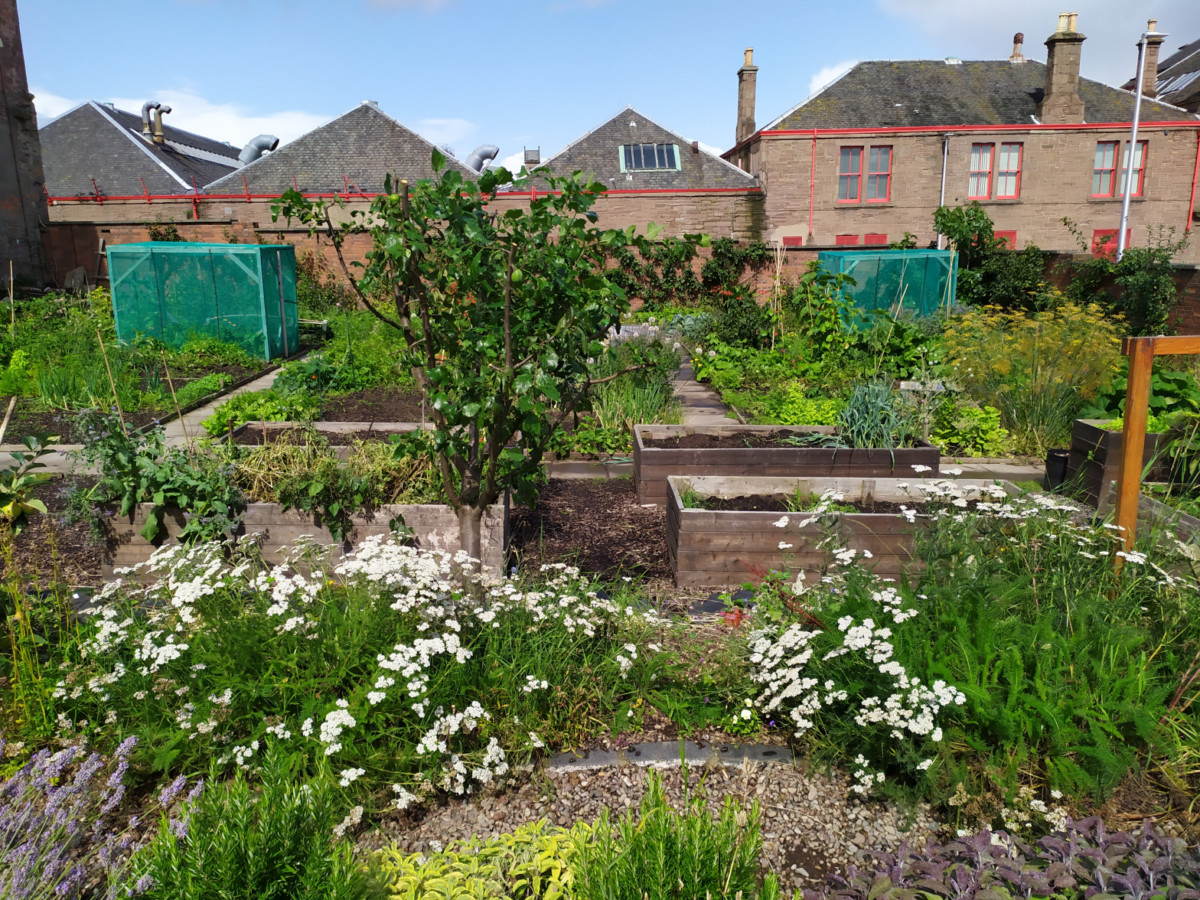 The Maxwell Centre community garden, Dundee
The Maxwell Centre community garden, Dundee
The aims and objectives were threefold:
To map community food growing in Tayside in a publicly accessible way, collecting data in the following categories:
- geographic
- biophysical characteristics including the ecological processes in use, and
- social characteristics
This has resulted in a new map of nearly 120 community-led food growing sites across the Bioregion.
To identify and cost interventions that would support the strengthening, development and transformation of community food growing in Tayside.
To design a delivery plan involving relevant stakeholders which will strengthen, develop and transform community food growing in Tayside.
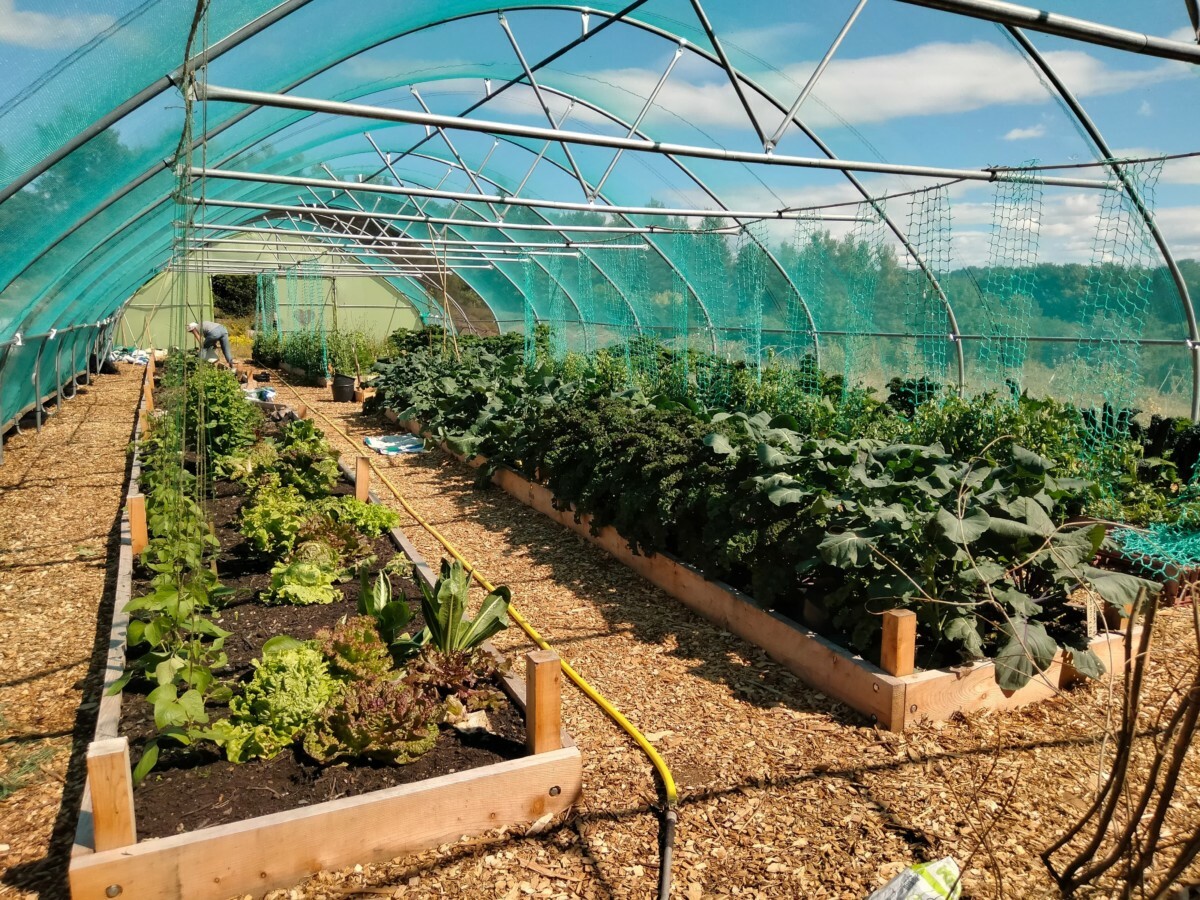 Campy Growers, Dundee
Campy Growers, Dundee
‘Recipes for action‘ have been grouped under the principle areas of activity identified in the ‘Intervention Wheel’:
- Change policy
- Educate promote & campaign
- Develop hard and soft infrastructure
- Identify new ways/kinds of financing
- Monitor and evaluate
- Mapping What we have now
Practical actionable steps have been detailed, with costings and a schedule for implementation, including:
- Developing a new charter for community-led food growing in Tayside
- Designing and delivering campaigns that promote community-led food growing
- The creation of a new Bioregion-wide network that could help drive joint funding bids, skills sharing, policy activism and greater connection to the more commercial parts of Tayside’s food system
- An investigation into the relevance of existing financial instruments that could support community-led food growing in Tayside
- A new strategy for collecting and evaluating data about community-led food growing in Tayside and
- Further mapping of community-led food growing in Tayside, which could support a Bioregion-wide food security strategy
 The Field, Dunkeld
The Field, Dunkeld
Read the full report with ‘Recipes for Action’ here.
Get in touch with us about the report by emailing: [email protected]
This entry was posted in News

